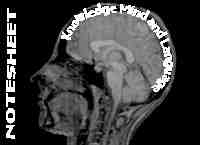 The
Status of Folk Psychology 2
The
Status of Folk Psychology 2
"Steven Stich ('Autonomous psychology and the belief-desire thesis') argues from the wideness of beliefs and desires that most such contentful states cannot be invoked in a genuinely explanatory psychological theory, and that, therefore, most or many of our everyday singular causal statements that specify beliefs or desires as causes of actions are without foundation." Lycan, Reader, 2nd Edition, p.254
Replicas with different beliefs
Do I and a recently made replica of me have the same beliefs?
Hilary Putnam's water / twater scenario
The principle of psychological autonomy
You might want to call this the scientific conception of psychology. It rests on the assumption that mental items may be real enough, but if so are entirely dependent on physical states of the brain - upon which, in the terminology of Jaegwon Kim, they 'supervene' (Stich, Reader 2nd edition, p.260).
'One class of properties supervenes on another if the presence or absence of properties in the former class is completely determined by the presence or absence of properties in the latter.' Stich, Reader, 2nd edition, p.260.
'...[T]he principle of psychological autonomy states that the properties and relations to be invoked in an explanatory psychological theory must be supervenient upon the current, internal physical properties and relations of organisms.' (Stich, Reader 2nd edition, p.260)
When we sponsor this view of psychology we are accepting that 'the best explanation of behaviour will include a theory invoking properties supervenient upon the organism's current, internal physical state.' (Stich, Reader 2nd edition, p.261)
Stich offers the following as a graphic way of putting this conception of psychology:
"[S]uppose we have before us a human being ... and his exact replica. What the principle of autonomy claims is that these two humans will be psychologically identical, that any psychological property instantiated in one of these subjects will also be instantiated by the other." Stich, Reader, 2nd edition, p.259.
Implications
Implications for the thesis that beliefs may be invoked in the explanation of behaviour.
Revised 16:03:03